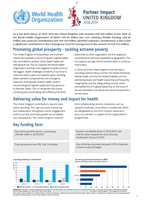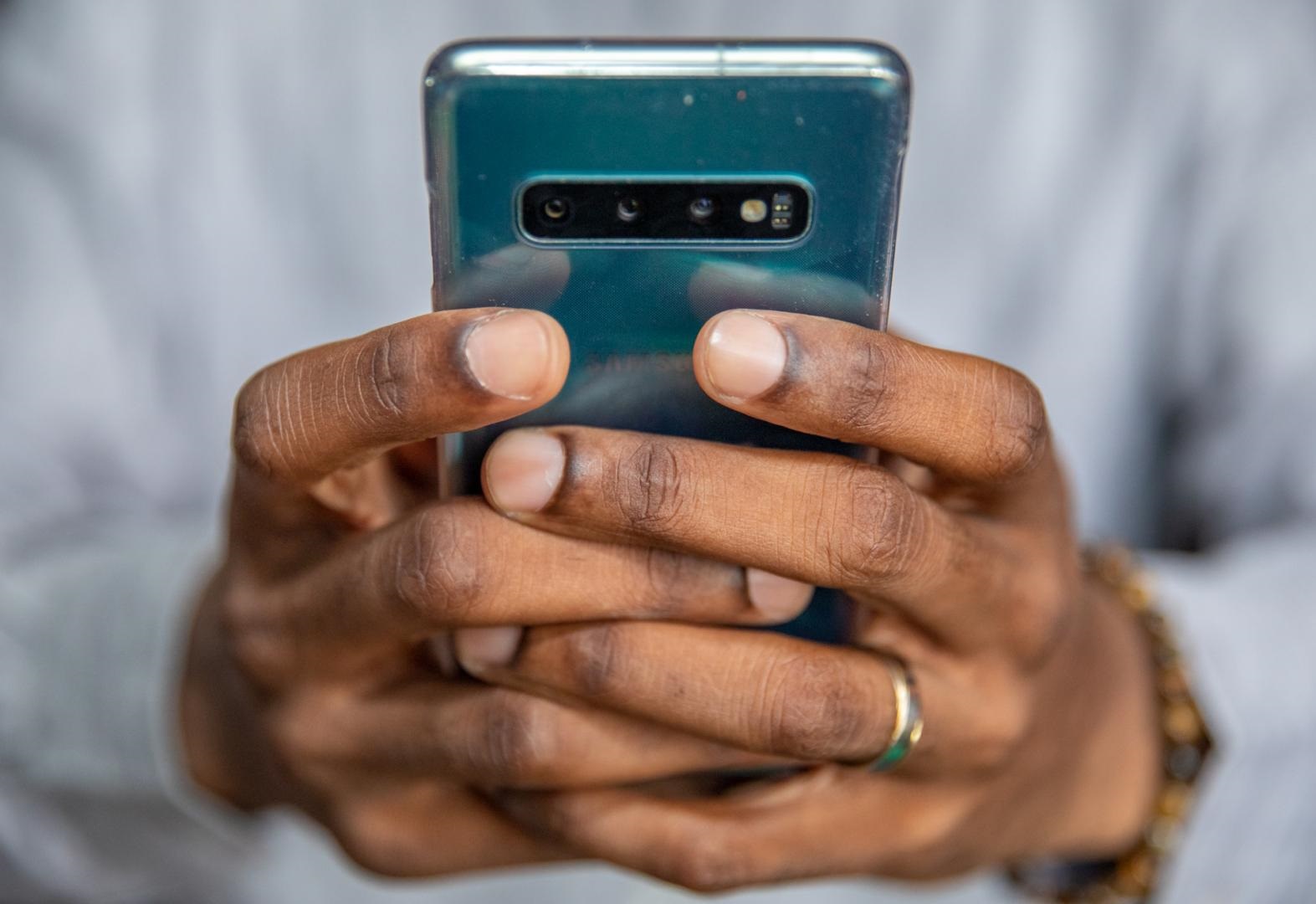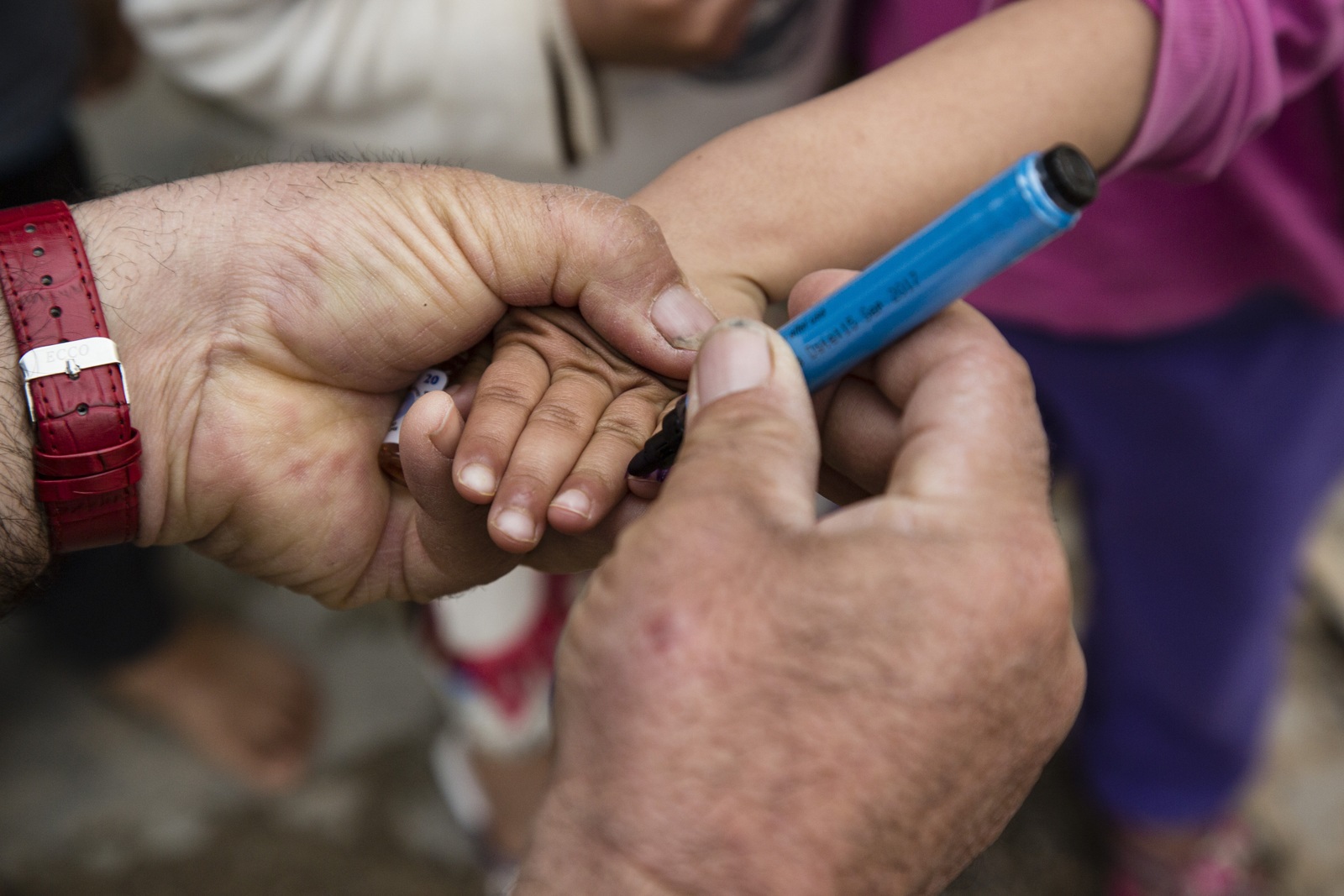
United Kingdom of Great Britain and Northern Ireland
Partner in global health
Oral Cholera Vaccination (OCV) Campaign to Golweyn Internally Displaced Persons (IDP) camp in Daynile District, Somalia. September 2022.
This content was last updated on 5 June 2023.
Setting global health priorities
The United Kingdom of Great Britain and Northern Ireland have long partnered with WHO to tackle the world’s most pressing health challenges, with a focus on UN Sustainable Goal 3: better health and well-being for all.
On 22 May 2023, during the 76th World Health Assembly, the UK launched its Global Health Framework outlining the shared objectives across the UK government to strengthen global health security, reform the global health architecture, strengthen health systems in the UK and globally, with strong leadership in health science and technology.
Recognizing that WHO is uniquely placed to lead and coordinate the world’s response to health emergencies and to protect and promote the health of all people, the Global Health Framework indicates that the UK will continue to support the WHO and strengthen it as an institution, and that the UK remains committed to a strengthened WHO that is more efficient, accountable, effective and sustainably financed. A Case Study included in the framework on WHO’s collaboration highlights the strategic importance of WHO to the UK development strategy.
Like the Global Health Framework Strategy, the 2022 UK development strategy underpins joint health priorities for the UK-WHO partnership, focusing on honest, reliable investment through British Investment Partnerships, providing women and girls the freedom they need to succeed, stepping up lifesaving humanitarian work and leading on climate change, nature and global health.
Guided by these strategies and building on the existing partnership, the UK-WHO collaboration aims to play a leading role in improving health globally and building resilience to future threats. WHO thanks the British people for their generosity and unwavering support.
Emergency response and pandemic preparedness

The UK is a steadfast supporter of WHO’s work in emergencies. During the COVID-19 pandemic, this support translated into important funding of the COVID-19 strategic preparedness and response plan and other critical work such as the ACT-Accelerator, a ground-breaking global collaboration to accelerate the development, production, and equitable access to COVID-19 tests, treatments, and vaccines.
Antimicrobial resistance

New treatment for drug-resistant tuberculosis
The United Kingdom’s Fleming Fund has contributed more than US$ 17 million in a multi-year commitment to WHO to fight antimicrobial resistance (AMR), caused by the misuse of antimicrobials in health or in the food chain. AMR compromises our ability to treat infectious diseases. The UK lobbies for international action on AMR, including collaborative leadership from the Tripartite on AMR: WHO, Food and Agriculture Organisation (FAO), and the World Organisation for Animal Health (WOAH). Significant successes in global collaboration include the establishment of the UN Inter-Agency Coordination Group on AMR and the launch of the Tripartite Joint Secretariat to implement their recommendations. The Tripartite also launched the Multi-Partner Trust Fund to take forward in-country action on AMR.
Building a stronger, results-oriented WHO

Regular performance reviews build investment confidence in WHO as the guardian of global public health. The United Kingdom supports the WHO transformation agenda and invests in WHO’s organizational capacity. Consistent and routine evaluations have anchored organizational learning in WHO’s work, helping improve its performance. WHO also developed new ways to engage relationships and build partnerships with governments, civil society, and multilateral organizations to expand its reach and achieve its goals. Strengthening WHO’s commitment to transparency, accountability and compliance will enable WHO to fulfil its mission, manage its resources, and deliver value for money.
WHO collaborating centres in the United Kingdom

The UK hosts 60 WHO collaborating centres, institutions such as research institutes, universities or academies, which are designated by the Director-General to carry out activities in support of the Organization's programmes.
Among them are top global institutions that share data and lend their expertise to WHO in areas such as nursing, occupational health, communicable diseases, nutrition, mental health, chronic diseases and health technologies.
Public Health England (PHE) is a strong partner, with nine collaborating centres, in the areas of global health security, mass gatherings, antimicrobial resistance research, special pathogens, chemical exposures, radiation protection, and nursing and midwifery.
WHO's Health Emergencies team partners with PHE in areas including capacity building, knowledge transfer, quality assurance for outbreak, simulation exercise management, human resources exchange and emergency.





